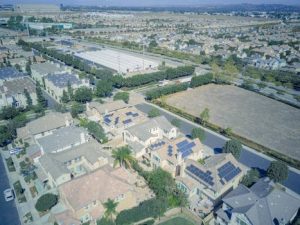Zoom Towns: How Video Conferencing is Reshaping Real Estate Markets
When the COVID-19 pandemic hit the world in early 2020, many businesses and industries faced unprecedented challenges. One industry that experienced a significant shift was the real estate market. With restrictions on in-person interactions and remote work becoming the new norm, more people started to rely on video conferencing tools like Zoom. This rise in virtual communication has led to the emergence of “Zoom Towns,” communities where people can work and live remotely while staying connected through video conferencing. In this article, we will delve deeper into the concept of Zoom Towns and how video conferencing is reshaping the real estate market.
What are Zoom Towns?
Zoom Towns, also known as “Zoom Cities” or “Remote Work Hubs,” are areas that have seen an influx of remote workers due to the rise of virtual communication tools like Zoom. These towns are usually located in more rural or suburban areas, providing a contrast to the typical fast-paced city lifestyle. Zoom Towns offer a quieter and more affordable alternative for those looking to escape the congested city life and work remotely from a different location.
The Rise of Zoom Towns
With the pandemic forcing many companies to shift to remote work to ensure the safety of their employees, more and more people have started to embrace the concept of working from home. As a result, employees can now work from anywhere, and many have chosen to leave crowded cities in search of a better quality of life. The ability to work remotely has made it possible for people to relocate to more affordable and peaceful areas without sacrificing their career growth or job opportunities. This trend has sparked the rise of Zoom Towns, offering a place where people can work and live comfortably without compromising their professional development.
The Impact on Real Estate Markets
The emergence of Zoom Towns has had a significant impact on the real estate market. According to a study by Redfin, the number of homebuyers who searched for property outside of their city increased by 28% in 2020, compared to the previous year. This trend has caused a surge in demand for homes in suburban areas, which were once considered less desirable. Furthermore, the rise of Zoom Towns has also led to an increase in property values in these areas, making them a lucrative investment for homeowners and real estate developers.
The Benefits of Living in a Zoom Town
One of the main benefits of living in a Zoom Town is the lower cost of living compared to big cities. People can save money on housing and other expenses while still earning a competitive salary. Additionally, living in a Zoom Town offers a better work-life balance, with more time for outdoor activities and quality time with family. The communities in these towns are also tight-knit, and residents often have access to better healthcare and education services.
The Future of Real Estate and Zoom Towns
The concept of remote work and Zoom Towns is not just a temporary trend caused by the pandemic. Many experts believe that it will continue to have a lasting impact on the real estate market in the future. With many companies adapting to a more flexible work model, it is likely that the demand for property in suburban and rural areas will remain high. This trend is already being reflected in real estate developments, with new residential communities being designed to cater to remote workers and their specific needs.
Conclusion
The rise of Zoom Towns and the increasing acceptance of remote work have changed the real estate market significantly. These communities provide a balance between the flexibility of remote work and the benefits of living in a more affordable and peaceful area. As technology continues to advance and remote work becomes the new norm, it is safe to say that Zoom Towns are here to stay and will continue to reshape the real estate market for years to come.








